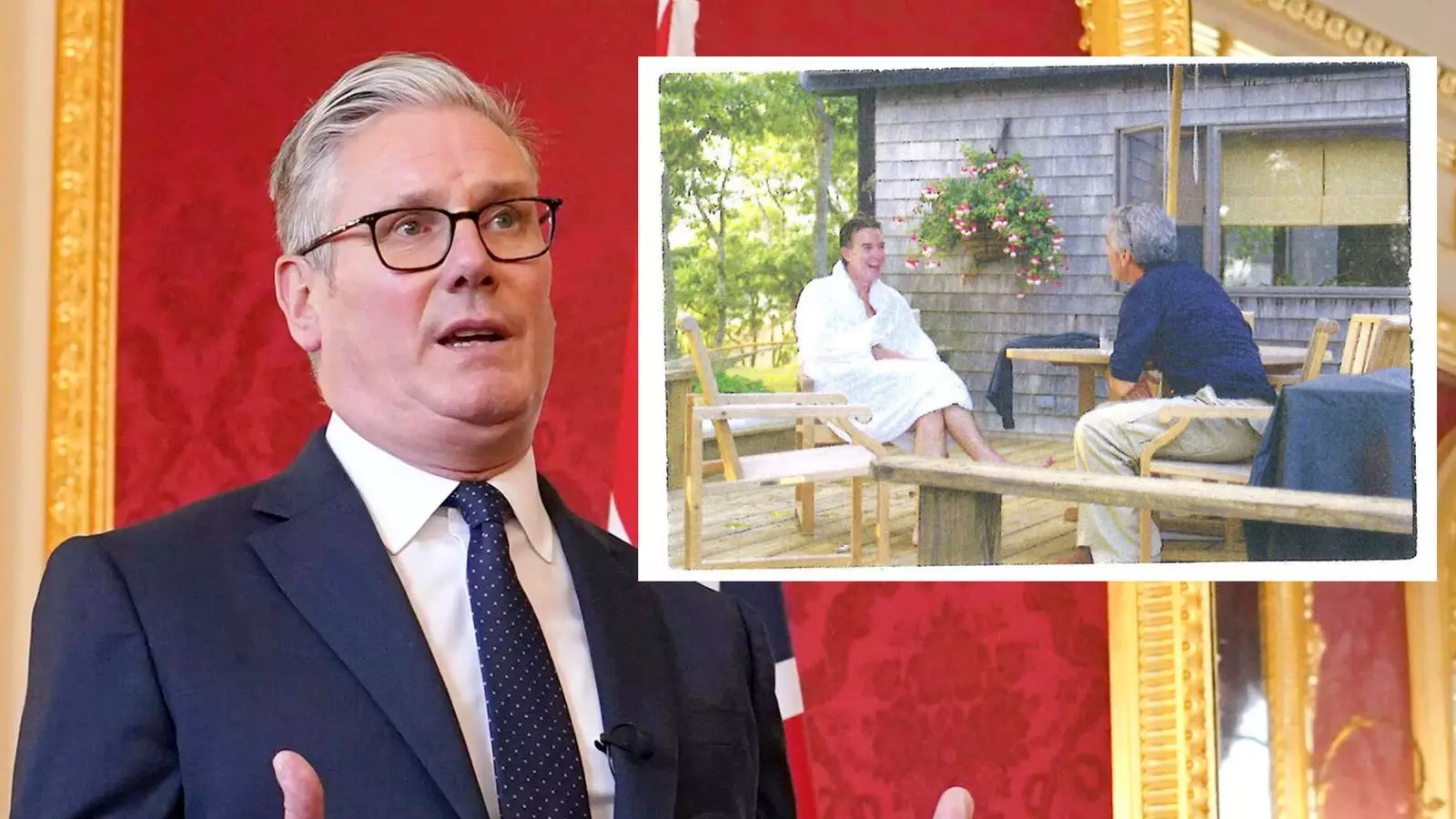In an era where political integrity often feels like a relic of the past, recent events in the UK parliament expose the perilous erosion of trust at the highest levels of governance. Sir Keir Starmer’s controversial appointment of Lord Peter Mandelson as ambassador to the United States serves as a harrowing example of political hubris and moral cronyism. Despite Mandelson’s admitted history of associations with Jeffrey Epstein—a notoriety that should disqualify any candidate from public trust—the appointment was made, revealing a profound disconnect between leadership’s aspirations and ethical standards. This scandal underscores not just individual failings but a systemic tendency within political circles to overlook the moral compass in pursuit of strategic advantage, a tendency that undermines the very foundation of democratic accountability.
Furthermore, the subsequent fallout exposes the fragile veneer of transparency in political vetting processes. The government’s reluctance to release detailed information about the vetting procedures that allowed Mandelson’s appointment illuminates the troubling phenomenon of opacity often espoused by those in power to shield systemic flaws. When leaders are more preoccupied with damage control than with genuine accountability, public faith is sacrificed on the altar of political convenience. The current crisis is emblematic of a broader disease: when loyalty takes precedence over integrity, the result is a deeply compromised political class incapable of truly representing the interests of ordinary citizens.
Partisan Warfare and Political Spin as a Deflection Tactic
The political tumult—ranging from emergency parliamentary debates to high-profile resignations—demonstrates that leadership today is often more about image management than genuine problem-solving. Prime Minister Sir Keir Starmer’s attempt to downplay the scandal, claiming ignorance of the “detailed allegations,” reads as an abdication of responsibility rather than an honest mistake. His hurried defense, and subsequent failure to articulate a clear moral stance, reveal a leader caught between loyalty to party and an obligation to uphold ethical standards.
The once straightforward terrain of political debate now resembles a battlefield, with each side keen to exploit moments of vulnerability for partisan gain. Conservatives aim to paint Starmer’s government as morally compromised, seeking to leverage the scandal to tighten their grip on power. Meanwhile, the opposition’s insistence on greater transparency and accountability highlights a deepening crisis: the suspicion that political elites view public scrutiny as an obstacle rather than a safeguard. The spectacle of political theater underscores an uncomfortable truth—when morality becomes a pawn in partisan warfare, leadership devolves into theatrical spectacle rather than genuine stewardship.
Leadership in Crisis: Will the Center Hold?
Amid this chaos, voices from within the political establishment attempt to provide a semblance of stability. Former Prime Minister Gordon Brown’s commendation of Sir Keir’s potential exoneration reflects a lingering belief among some centrist liberals that pragmatism and institutional loyalty can overcome scandals rooted in moral failure. Brown’s rationale emphasizes the importance of making difficult decisions—an acknowledgment that leadership is often about choosing the lesser of evils in a morally compromised landscape.
However, such sentiments risk perpetuating a dangerous complacency. If our political leaders continue to dismiss ethical lapses as mere “difficult decisions” or “unintended consequences,” we endorse a cycle of corruption and moral abdication. Effective leadership in a modern democracy must be rooted in moral clarity, not expediency. The challenge for the center wing of liberalism is to uphold these standards while resisting the corrosive temptations of cynicism and political expediency. Only through uncompromising adherence to ethical principles can political legitimacy be restored and the public’s faith in governance rekindled.
The unfolding scandal surrounding Lord Mandelson’s appointment symbolizes more than individual failings; it encapsulates a crisis of values at the core of political life. Leadership that operates without accountability, transparency, and moral integrity is a threat not just to political stability but to the very fabric of democratic society. The challenge now is for a center liberalism to champion ethical governance, demanding a political culture where integrity is non-negotiable and accountability is paramount. In a world increasingly defined by distrust and disillusionment, the question remains: will our leaders summon the courage to confront their moral failures, or will they continue to hide behind procedural facades? The future of democratic legitimacy hinges on their answer.


Leave a Reply